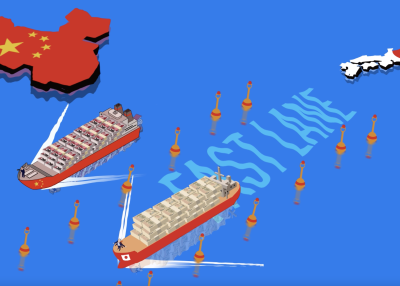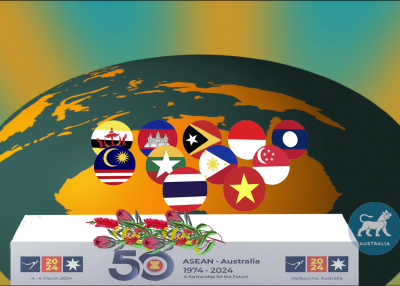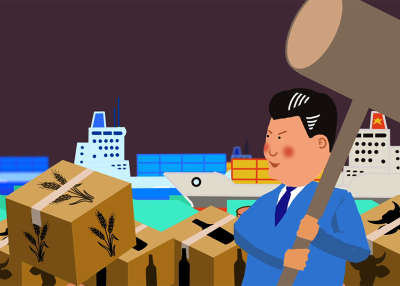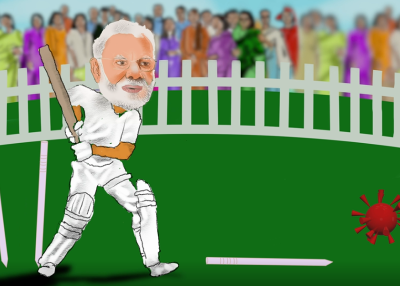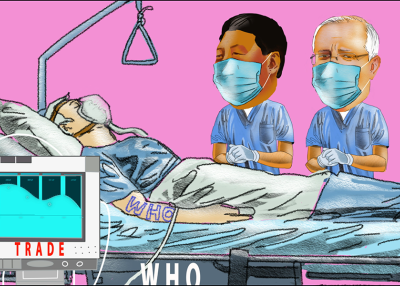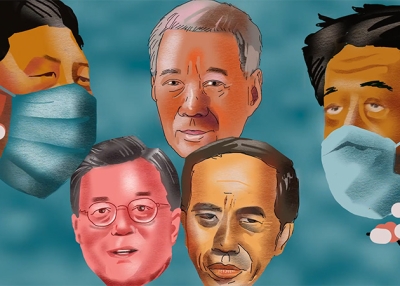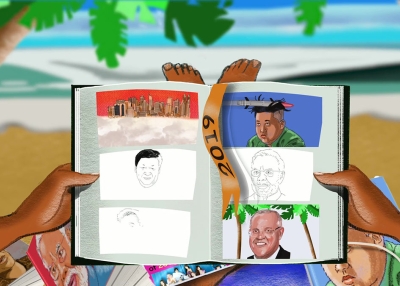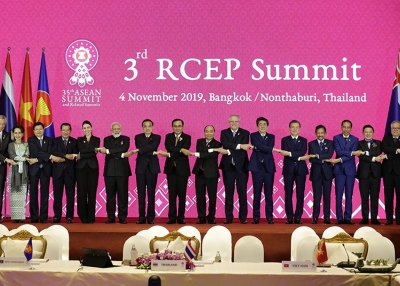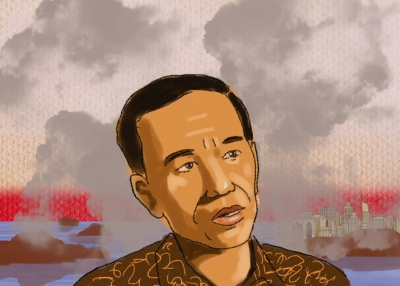Briefing MONTHLY #2 | December 2017
Educating Indonesia | Hugh White - the rock star | Deals and Dollars | Books to read this summer and more
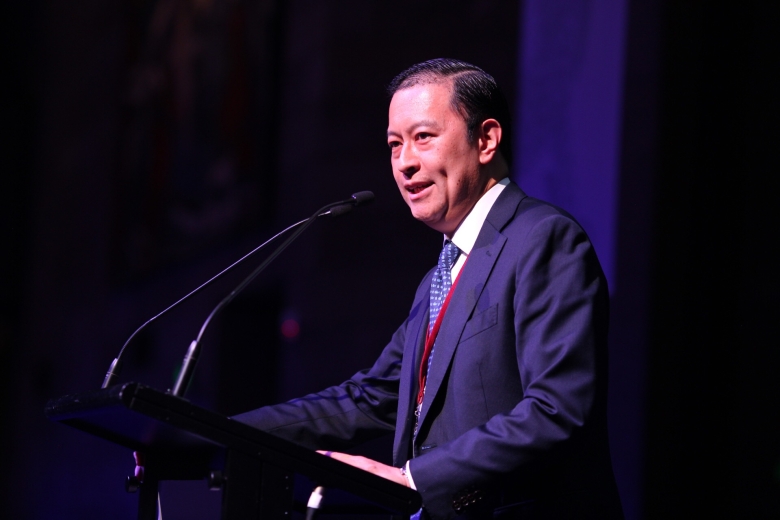
Picture: Ellis Cowan/Asia Society Australia
EDUCATING INDONESIA
A breakthrough on Australian universities providing services in Indonesia is set to be a key feature of the long-awaited trade deal between the two countries. Indonesian Investment minister Tom Lembong said President Joko Widodo is determined to allow foreign investment in the Indonesian higher education sector in order to improve the employment skills of the country’s youthful population. And Indonesian officials have been discussing how to work this into the Closer Economic Partnership Agreement (CEPA) negotiations since Widodo told his Cabinet in mid-November that the existing Law of Education needed to be revised so foreign universities and polytechnics could establish campuses in the country. Lembong said the CEPA negotiations were informally re-opened in early December to reflect this major shift in Indonesian education policy and a potential big cut in the tariff on Australian-made boats exported to Indonesia. He said the luxury boat tariff could be cut as low as zero to allow Australian boat builders to play a key role in Indonesia’s plan to build more Bali-style marine tourism resorts. Lembong, who was trade minister before taking over as investment minister and has special responsibility for Australia, said these two shifts on education and tourism by Indonesia reflected his longstanding view that the trade agreement had to move beyond traditional areas of business. Lembong was speaking in an interview with Briefing MONTHLY during a visit to Melbourne to be appointed the first Asia Society Australia-Victoria distinguished fellow, a new initiative to promote greater connectivity between Victoria and Asia. Other sources familiar with the CEPA negotiations say Indonesia regards the education move as a major liberalisation in the trade deal talks which started in 2010 and are intended to embrace an economic development agenda beyond normal trade barrier reductions. But Indonesia is likely to demand in return that if Australian education institutions are able to operate in Indonesia, the people they train should have some form of work access to Australia. “People demand breakthrough thinking. I think marine tourism is something like that. It’s completely out of left field. We need breakthroughs in today’s world rather than being stuck in old paradigms,” Lembong said.
NEIGHBOURHOOD WATCH
IT'S MODI v GANDHI
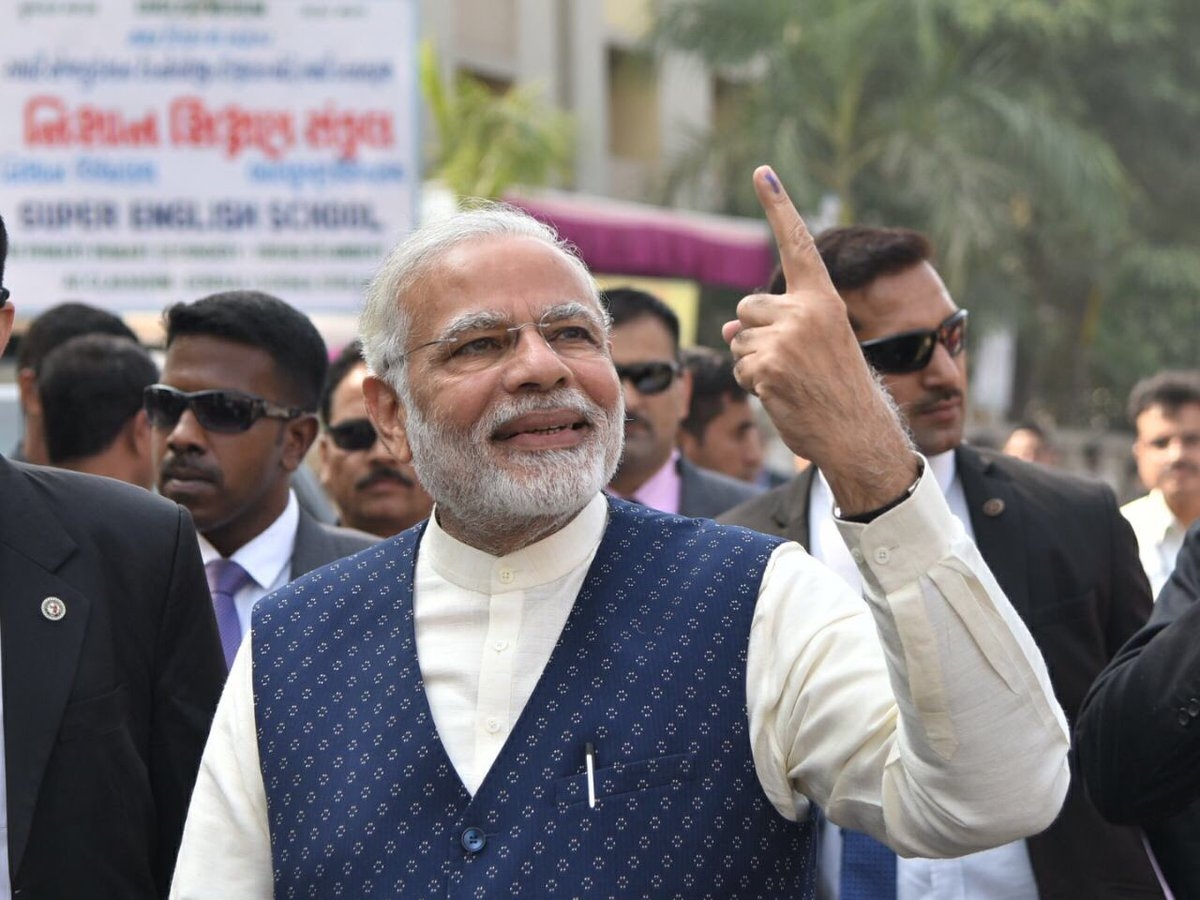
India’s 2019 election showdown is now under way with Prime Minister Narendra Modi fending off a surprisingly strong challenge to his authority in the election for his home state of Gudjarat. But just three days after taking formal leadership of the Congress Party, Rahul Gandhi, appears to have gained some much needed new stature by forcing Modi into a tough defensive race. Modi and his Bharatiya Janata Party dominate India with 19 state governments compared with eight in 2014 when Modi became prime minister. But the Gudjarat poll revealed some fractures in the Modi economic story which Congress may well exploit further in the eight state elections due in 2018 ahead of the national contest.
PNG DEMYSTIFIED
It is often not appreciated that Australian companies have more direct investment in Papua New Guinea ($15.8bn) than China ($13.3bn), although the volume of reporting and analysis of our closest neighbour is vastly less. But with PNG about to loom larger in the region next year as the host of the Asia Pacific Economic Cooperation (APEC) group summit, two new publications have helped fill the information vacuum. The World Bank has decided to produce a twice-yearly report on the country which kicked off this month with a special focus on health issues. And the Lowy Institute has released a much broader publication by nine experts which ranges from social trends to geopolitics in an effort to produce a matrix of what will determine the country’s future. And don’t overlook former Treasury economist Paul Flanagan’s often passionate assessment of what is going wrong. Together these publications don’t make for comfortable reading – but at least there is something to read.
THE SEATS THAT REALLY MATTER
Xi Jinping and Narendra Modi are typically portrayed as nationalistic strongmen and potentially deadly rivals. But with both men exerting more personal control of their countries than we have seen for decades it is striking how they have turned their attention from grand strategy to the most basic of popular concerns – cleaner toilets. Modi backed better sanitation as part of his 2014 Indian election campaign but he has been reinforcing the commitment this year. Xi first supported better public toilets in 2015 to attract more tourists but has now made this a broader issue since his re-appointment as China’s president last month. (see The Economist here) When so much of the focus in Australia is on these two men as foreign policy players, this is a useful reminder that with 2.7 billion people to look after they often have more urgent issues at home.
DIPLOMATICALLY SPEAKING
"China, Chinese people stand up for their sovereignty, and they expect Australian people and particularly Australian leaders to stand up for theirs. That is why we respect each other and that is why they respect me and my government.” Malcolm Turnbull speaking in the Sydney electorate of Bennelong on November 10
ASIAN NATION
THE CHINA CHOICE
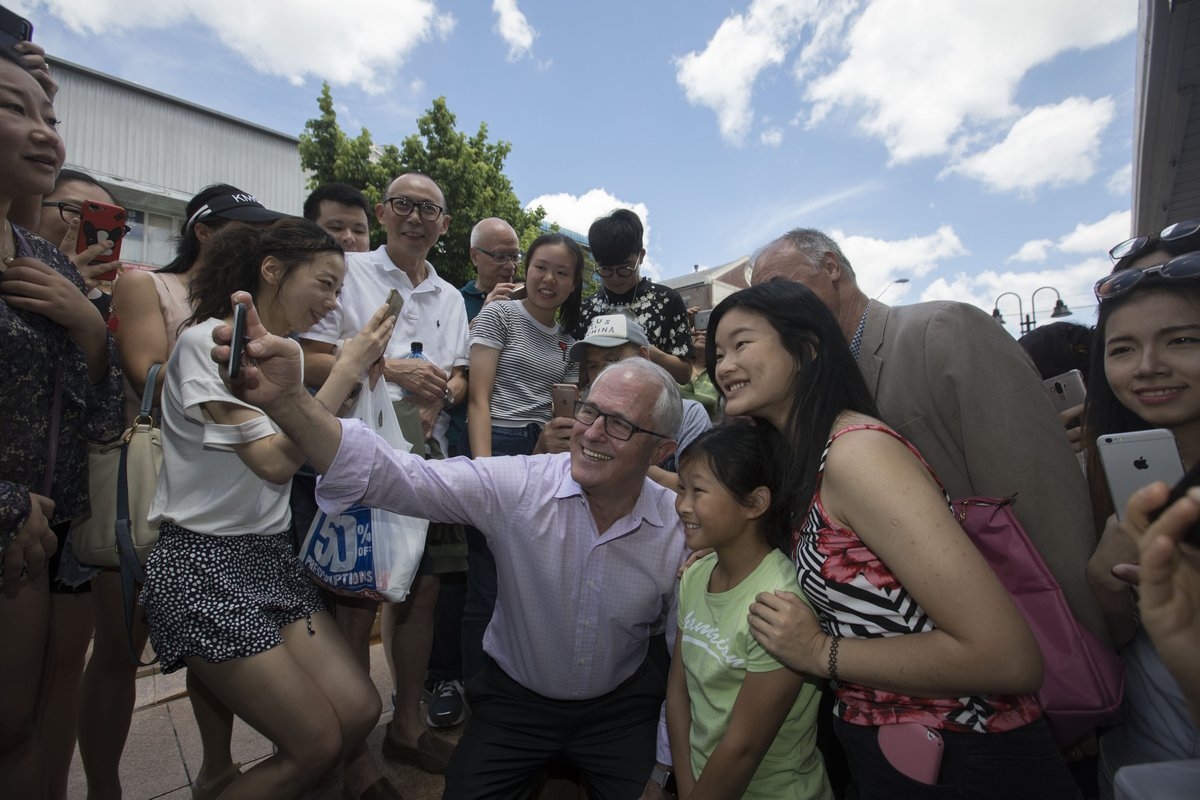
The predictable claims of victory from both sides of politics at the Bennelong by-election have also left a political void. Has the uncertainty about the real views of Chinese Australians and the conflicted fundraising practices of both major political parties made this the high-water mark for playing the China card in elections? Or was this just a test run for a real election?
- Two of the key protagonists in this debate are more divided than ever over the future. See ACRI’s Bob Carr here first and then ASPI’s Peter Jennings responding here.
- But The Economist magazine says China has moved from soft power to sharp power with implications for far more countries than Australia.
- Meanwhile La Trobe Asia’s Nick Bisley reports back on an unexpectedly challenging visit to see counterparts in China.
- Amid this political noise, BHP’s Andrew Mackenzie says there is still much room for cooperation between the western and eastern economic models.
- And the latest edition of the East Asia Forum Quarterly is devoted entirely to China’s rising influence here and abroad.
BUT THE BAND PLAYS ON
Attending the launch of a new work by Australian National University strategic analyst Hugh White is a bit like the long-awaited return tour by an ageing rock star. In the foyer of ANU’s Australia Centre on China in the World there’s a queue of groupies waiting for a last minute seat. The performer strides to the rostrum with a cheeky Rod Stewart-style grin. Except in this case reverence is measured by the hushed expectation rather than loud cheers. Indeed, there is barely a sound in the packed room as White outlines how he is now convinced that China will dominate Asia - until he cracks a joke at the expense of the new Foreign Policy White Paper. The launch of White’s latest collection of his distinctive Chinese Millennial Thrash Metal - evocatively titled Without America - has drawn a noticeably youthful crowd this rainy Canberra night. But this only underlines an important point: they will be the people managing the China challenge in the bureaucracy in the decades to come. Indeed, one young fanboy confides White’s graduate lectures persuaded him to seek a public service career outside conventional mainstream policy making in the Department of Foreign Affairs and Trade. And the old stager certainly doesn’t disappoint as he strays from the latest collection with some golden oldies and new riffs. The public service went downhill in the mid-1990s. “We are building a really dumb (Defence) force in an unimaginably stupid way.” “We can’t rely on India helping us keep China out of East Asia.” And, (apologies to Pete Townsend) “my generation” finds the idea of Australia adopting nuclear weapons much more difficult than the younger generation. By this stage of the Q&A, White is doing the academic version of the catwalk – striding up to questioners as if to have a personal conversation. But then MC Michael Wesley calls time with a perfect liner note: “The debate has just been taken to a new level.” The encores will be performed outside. As I leave I notice most of the remaining people in the foyer are in the queue still loyally waiting to get their copy signed.
Read Without America - Australia in the new Asia, Quarterly Essay 68 (Black Inc).
NOW, NOT WHY, FOR ASEAN
Austrade has provided an insight into the importance Prime Minister Malcolm Turnbull is attaching to fashioning a foreign policy legacy from the summit of South East Asian leaders in Sydney next March. The just released successor to its 2015 report Why ASEAN and Why Now has been rebadged ASEAN Now in time for the summit. Turnbull writes: “The Special Summit is a historic and unprecedented opportunity to strengthen Australia’s strategic partnership with ASEAN and deliver tangible security and economic benefits to both sides.”
9 OUT OF 10 AIN'T BAD
Australian Competition and Consumer Commission (ACCC) chairman Rod Sims says his agency’s long running program of helping South East Asian countries develop their own competition regimes should be seen as a good foundation for Australian business in the region. He says it is little appreciated that the number of Association of South East Asian Nations (ASEAN) members with competition laws has doubled in the past decade to nine and ACCC officials have played a quiet role in nurturing this shift. Speaking during a visit to Australia by a delegation from the ASEAN Business Club Sims said competition laws were internationally understood and so were a good place for developing countries to embark on business law reform. “This will help business ties in the region and will tie together Australia and ASEAN,” Sims said.
DEALS AND DOLLARS
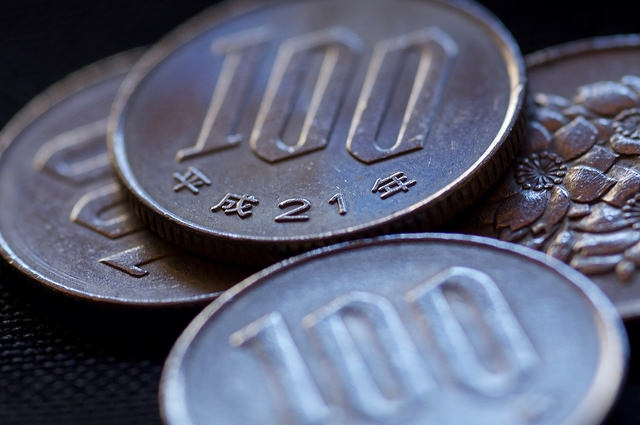
NEW YEAR HONOURS LIST
Looking forward to next year, it is interesting to note that when The Australian’s commentator John Durie surveyed 64 business leaders and asked them about their agenda for the country and their company in the year ahead, only 16 actually named an Asian country. Eight others made reference to Asia generically. China was the standout with 11 references, followed by Japan with four and India, Indonesia and Singapore with three. And the winners are Boral’s Mike Kane who referred to six countries and Coca-Cola Amatil’s Alison Watkins who named four.
BEANS IN THE MIX
Coca-Cola Amatil has endorsed Indonesia as one of its major growth markets despite slower consumer spending this year and added coffee to its mix of local products. The company underlined its confident country outlook by holding its annual investor presentation in Jakarta in the same week that the Federal government elevated Indonesia’s importance as a partner in its Foreign Policy White Paper. The Australian company sold 29 per cent of the 25-year-old drink bottling business to the US parent in 2015 to raise capital for a transformation plan it says has made solid progress with improved distribution, new products and packaging changes. While household consumption has fallen in Indonesia this year, the company told investors it was optimistic about the future due to the country’s rising affluence. And it has underlined its optimism about the emerging middle class by introducing its Grinders coffee brand in an alliance with machine-capsule company Caffitaly. Chief executive Alison Watkins said the Indonesian ‘café scene’ was rapidly emerging, with overall coffee consumption growing at 20 per cent over the past five years.
TOLL'S NEW LIFE
Japan Post says it has given its new Toll Group management team a clean slate to turn the logistics business around after cutting 1700 jobs and writing off $4.9 billion from the 2015 $6.5 billion record Australian purchase by a Japanese company. Japan Post chief executive Masatsugu Nagato said during visit to Australia that his company would not succeed in its global expansion if it did not make the best use of the Toll footprint. And here’s a great statistic cited by Nagato in a Financial Review interview that says something about corporate Japan’s search for growth offshore. In 1989 the country had seven of the world's top 10 companies but its biggest company, Toyota, now sits at number 33.
INDONESIA ON ELDER'S CHOPPING BLOCK
Elders has put its Indonesian cattle feedlot and beef processing assets up for sale after deciding they were not meeting its required return on capital. The company runs an abattoir, a beef distribution business and an 8000 head feedlot in South Sumatra. It says it is still committed to the live export industry in Australia and will maintain its brand in Indonesia with its meat distribution business. Earlier this year it sold its live export logistics business North Australia Cattle Company to a Chinese-Australian partnership.
DATAWATCH
ASIA'S BEST BUSINESS PLACE
Singapore 2 (2 previously)
South Korea 4 (5)
Hong Kong 5 (6)
Australia 14 (15)
Malaysia 24 (23)
Thailand 26 (46)
Japan 34 (34)
Vietnam 68 (82)
Indonesia 72 (91)
China 78 (78)
India 100 (130)
Source: World Bank Ease of Doing Business ranking 2018 and 2017
WHAT WE'RE READING

BLOOD AND SILK BY MICHAEL VATIKIOTIS (WEIDENFELD & NICHOLSON)
Shifting from foreign correspondence to conflict resolution has left Michael Vatikiotis with a rather dismal view of the capacity of South East Asian countries to deal with their political and economic challenges. He has distilled forty years working in the region into what is the crucial primer for the summit of regional leaders in Sydney next March. The former Far Eastern Economic Review editor goes behind the glitzy office towers from Jakarta to Bangkok to bemoan the wilful selfishness of elites, an unnerving decline in tolerance and growing external pressures from China, the US and Middle Eastern Islamic dogma. His conclusion will be uneasy reading for all those advocates of the economic benefits of regional integration: “Southeast Asia by 2050 may well more resemble the region before the invasion of European powers after the 1500s. It will be more decentralised and characterised by pockets of hard won autonomy.”
FEAR OF ABANDONMENT BY ALLAN GYNGELL (LA TROBE UNIVERSITY PRESS)
Government White Papers get relatively scant attention in this history of Australian foreign policy since 1942 consistent with Allan Gyngell’s view that they are usually quickly overtaken by events. That said, it is hard not to see this book as the essential background volume to the latest White paper Opportunity Security Strength which has sought to chart a path for Australia in the world over the next decade. Gyngell argues that Australians have been more comfortable understanding their role in the world via the clarity of military exploits than the ceaseless compromise of foreign policy. But he notes most Australian prime ministers have taken to international issues with a “sense of exhilaration and relief” because they are free of domestic frustrations. Weaving between these two extremes Gyngell argues that the country’s fear of abandonment by its traditional great and powerful allies has produced a more activist and creative foreign policy tradition than most Australians would appreciate. But this is where he deviates from the relative confidence about the country’s ability to chart a new course in the White Paper. The challenges facing the international order mean that “if Australia is to secure its future, it will have to become even more directly and deeply engaged in the international diplomacy necessary to shore up the system and establish new rules.”
ASIA'S RECKONING BY RICHARD MCGREGOR (ALLEN LANE)
At the end of this history of the mutually suspicious relationship between the US, China and Japan, it is hard not to fall back on a disarmingly simple formula cited at the beginning which was offered to the author during his research. “The Americans like the Chinese, but they don’t like China. They like Japan, but they don’t like the Japanese.” After trawling through half a century of diplomatic meeting records and more recently reporting from the three countries, McGregor himself seems a little nonplussed that “this characterization of the relationship, as crass as it sounds, neatly encapsulates the competing strategic and emotional strands of trilateral ties.” The election of Donald Trump with a world view formed during the 1980s when the US and Japan were economic rivals and an inclination to cut a property tycoon-style deal with Chinese President Xi Jinping, has drawn new attention to this mutual suspicion. But McGregor, an Australian journalist, is at his best when he revives the personal chemistry of the meetings between key figures over the past half century who have fuelled – and in some cases calmed – the suspicion. There is a deep cultural history between China and Japan which sustains their differences and often bemuses Americans. But it is the personal chemistry which will mean the difference between war and peace.
PACHINKO BY MIN JIN LEE (APOLLO)
In the vein of Downton Abbey, the Fortunes of Richard Mahoney and Anna Karenina this is a highly readable novel which Min Jin Lee has been nurturing since 1989. It is essentially an intimate story of a family on the run from Japanese colonial Korea in 1911 to Osaka and then deeper into Japanese society against the background of two brutal wars. Pachinko parlours are a ubiquitous feature of Japanese life despite the country’s reluctance to accept casinos and have long been a source of sustenance and reputedly fabulous wealth for both native and Japanese-born Koreans otherwise frozen out of the business establishment by lingering colonial era racist attitudes. Though incredibly resourceful and stoic, the characters at the heart of the novel face many cruel moments. And Lee dispatches them through accident, murder, suicide and deprivation without so much as a look in the rear-view mirror. It is a case of dishing out immigrant life and everyone moving on, coping and finding a new path. Lee’s experience as a Korean-American living in Tokyo brings an extra perspective to the core traditional tension between Japanese and Koreans even though they share so much common culture. The novel has relevance today as Japan and South Korea struggle with the North Korean nuclear threat in much the same way that Peter Schneiders novel about the Berlin Wall - The Wall Jumper – does. It reminds us that North Korea was once a place to which downtrodden Japanese Koreans actually dreamt of returning.
SUCH A LONG JOURNEY BY ROHINTON MISTRY (FABER MODERN CLASSICS)
The recent flight of the Rohingas to Bangladesh makes this a good time to re-read (or read) the first of Rohinton Mistry’s three Booker Prize nominations. First published I991, this is the tale of Gustad, a family man and bank clerk living in India, whose sympathies for Pakistan draw him into taking dangerous risks. This is a complex story that also delves deeply into the social connectedness of Indian society exposing domestic and political details alongside a man trying to find his path. One of the more charming asides is Gustad’s campaign to defend a garden wall and favourite shrubs against trespassers and a government contractor who wants to needlessly widen a road. This will shrink a village garden by half leaving residents with “more a prison camp than a building, all cooped up like sheep or chickens. With road noise and nuisance so much closer. The flies, the mosquitoes, the horrible stink, with bloody shameless people pissing, squatting alongside the wall. Late at night it became like a wholesale public latrine.” Despite heroic efforts, Gustad loses his fight. Mistry, who grew up in Bombay and now lives in Canada, evokes enormous empathy for the strugglers in his now rising homeland and this is a perfect time to appreciate what he has to say.
KIWI: THE AUSTRALIAN BRAND THAT BROUGHT A SHINE TO THE WORLD BY KEITH DUNSTAN (ALLEN & UNWIN)
In 1953 two Japanese businessmen did an unusual thing: they voluntarily owned up to selling fake Kiwi shoe polish because it was so popular. It is not clear whether this intellectual property breakthrough gave a little appreciated Australian global business pioneer renewed confidence to pursue its philosophy of manufacturing abroad rather than just exporting. But it did mark the beginning of Kiwi’s push into Asia from a base in Singapore after success in Europe and the US built on following the Australian diggers into the two world wars. By the 1970s Kiwi had operations in Tianjin, Tokyo, Taipei, Manila, Jakarta, Singapore, Johore, Bangkok, Madras, Colombo and Karachi. The commitment to offshore investment for a product at risk of being faked should be an inspiration to modern businesses reluctant to step into Asia. As this richly illustrated large format book shows, the company was happy to accommodate local innovation like the use of its shoe polish to “age” wooden handicrafts for the Bali tourist markets. In 1982 Kiwi merged with Nicholas Aspro, one of the few other Australian companies to prosper through the Sukarno years in Indonesia. But two years later the merged firm was a signpost for the future of Australian manufacturing brands: it was bought out by US-based Sara Lee.
THE GRAMMAR OF SPICE BY CAZ HILDEBRAND (THAMES AND HUDSON)
Behind the pretty turmeric coloured page edges of this book, the real spice is in the backstories of the jars that we all buy and then somehow lose in the larder. Nutmeg, for one, flavoured the air of the Banda Islands in Indonesia so much that the sailors smelled it before they even caught sight of the land. Today it is much more widely grown and even on the Grenada flag. Who knew, for example, that the American pantry staple, Chesapeake Bay Seasoning, was invented in 1939 by German immigrant who escaped from the Nazis carrying only his spice grinder? Or that the first English curry recipe published in 1747 was for curried kangaroo tails. Hildebrand has chosen to illustrate this book - not with botanical specimens - but with decorative bookplates inspired by a London architect who published The Grammar of Ornament in 1856 after a grand tour to study Islamic decoration. She insists that the connection between spice and design is not spurious quoting the architect who wrote that “form without colour is like a body without soul.” Hildebrand adds: “The same could be said for food without spice and its complex diversity of aromas and tastes. The best approach in the kitchen is one where a diversity of spices properly attends a rich range of ingredients by working, rather than competing, with them, and, as in decorative arts applied to good architecture, elevates them."
ON THE HORIZON
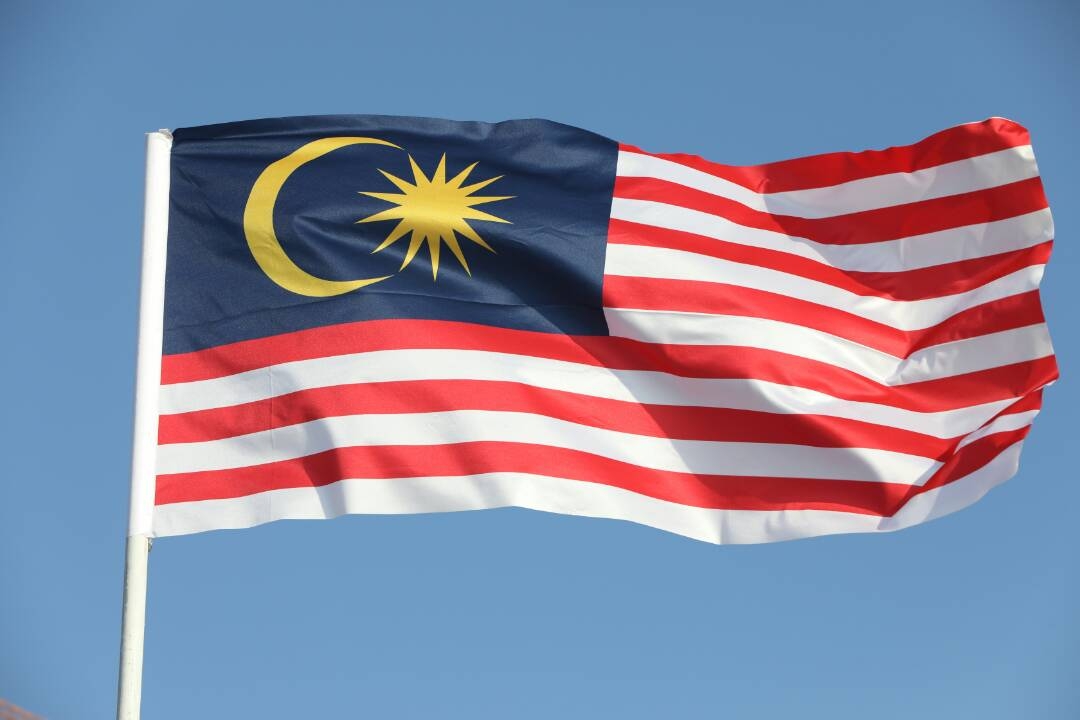
A 1000 YEARS OF UMNO
Malaysian Prime Minister Najib Razak already presides over the world’s longest running regularly re-elected government with his United Malays National Organisation in control since independence in 1957. But now he is talking of UMNO ruling for 1000 years more. This could all come to a head as early as January with Najib opting for an early election despite the 1MDB corruption scandal and the refusal of his former boss Mahathir Mohamad to leave the political scene. Najib seems to be in his best position since only narrowly winning the 2013 election with the economy improving and the popular former Opposition leader Anwar Ibrahim still in jail until June on highly questionable charges. Yang Razali Kassim, of Singapore’s Nanyang Technological University, says a “stint out of power may not be bad for UMNO’s soul.” So, make that 995 years.
ABOUT BRIEFING MONTHLY
Briefing MONTHLY is a public update with news and original analysis on Asia and Australia-Asia relations. As Australia debates its future in Asia, and the Australian media footprint in Asia continues to shrink, it is an opportune time to offer Australians at the forefront of Australia’s engagement with Asia a professionally edited, succinct and authoritative curation of the most relevant content on Asia and Australia-Asia relations. Focused on business, geopolitics, education and culture, Briefing MONTHLY is distinctly Australian and internationalist, highlighting trends, deals, visits, stories and events in our region that matter.
Partner with us to help Briefing MONTHLY grow. Exclusive partnership opportunities are available. For more information please contact [email protected]
Read previous issues and subscribe >>
Copyright © 2018 Asia Society Australia, All rights reserved.

